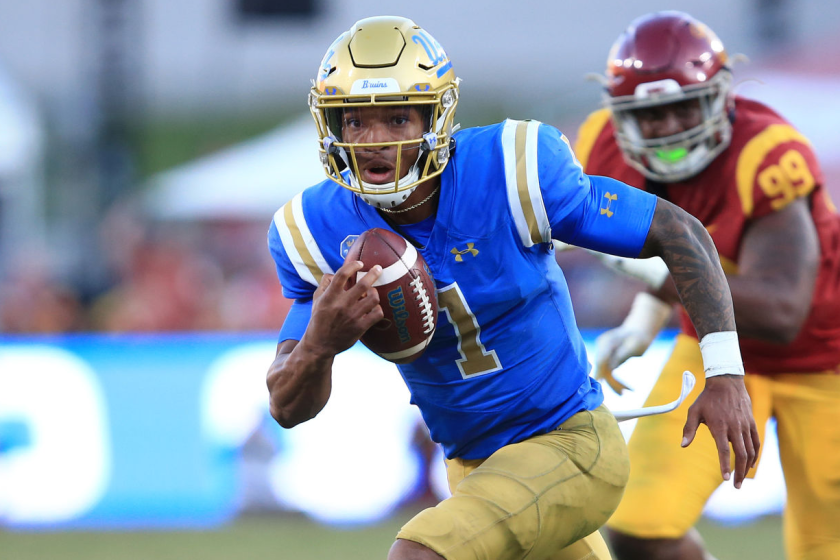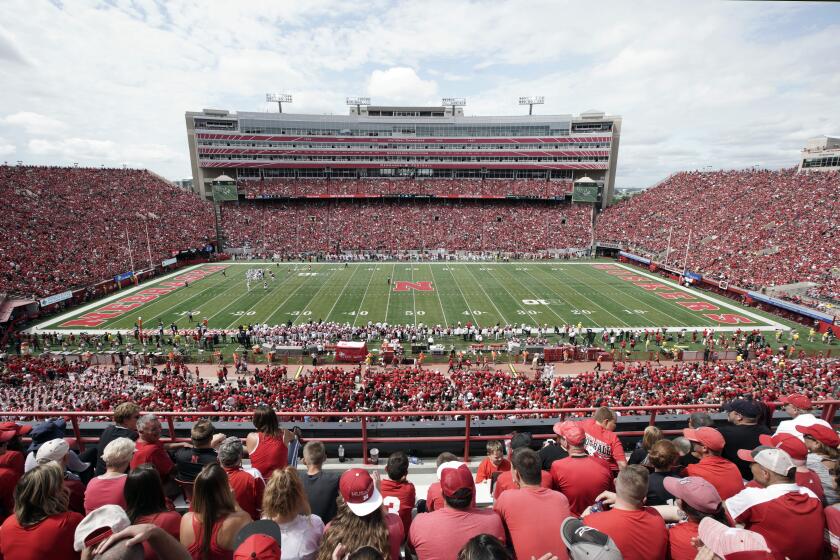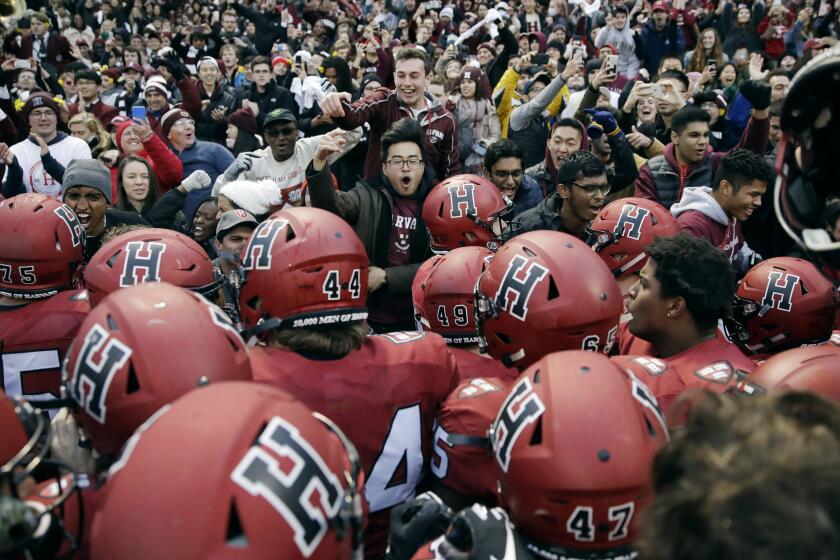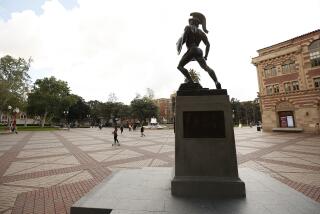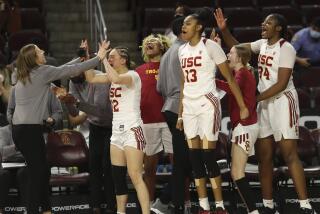USC athletes receive encouraging coronavirus test results, but an unease remains
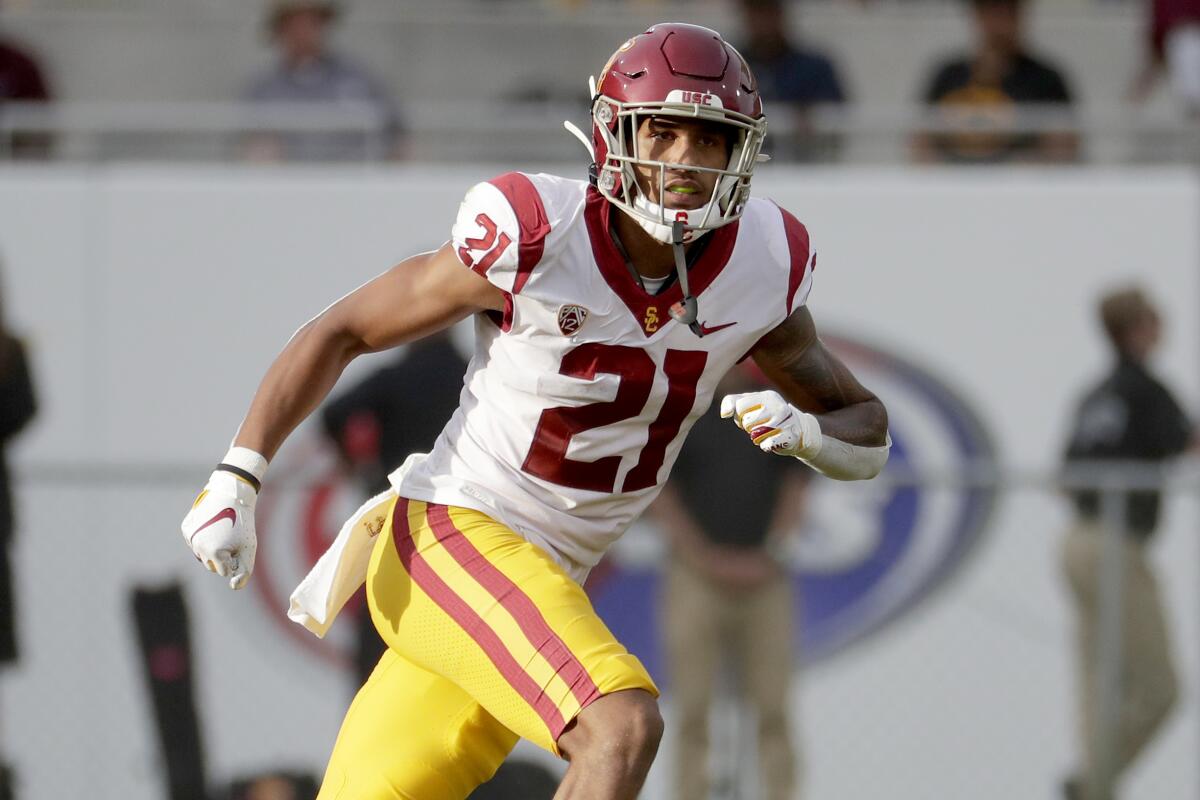
Every possible precaution was taken, every step carefully considered. For Trojans athletes trickling onto USC’s campus for Phase 1 of workouts late last month, the process felt bizarre but comfortingly cautious.
There were daily wellness checks with questionnaires and weekly COVID-19 tests with results in 24 hours. A barcode scan, meant to trace entry into McKay Center, was mandatory. Temperature scans were required, and wristbands were handed out to all who entered. Masks were omnipresent too, removed only when athletes were running a safe distance apart.
Outside the weight room, an individualized basket — with a water bottle, towel and shoes — awaited each athlete. Inside, multiple racks separated workout stations, each of which was wiped down after every session.
Those protocols were enough to put some at ease through two weeks of voluntary workouts at USC. While COVID-19 cases spike across the country and some schools shut down workouts completely, USC has managed to mostly circumvent the virus.
The Pac-12 announced it will only play conference games, if there is a season, and also that Commissioner Larry Scott tested positive for COVID-19.
Through three rounds of testing, USC has had four positive cases out of 201 tests — a total that pales in comparison with other major college programs across the country. USC did not disclose whether any of those cases included football players.
It was an encouraging result considering the spike in Los Angeles County. Still, a lingering unease remained as USC’s tiered return advanced to Phase 2 on Wednesday, with dozens more athletes flooding onto campus and fall sports appearing ever more in doubt in the days since.
On Friday, the conference dropped a bombshell, following the Big Ten in announcing its member schools would play only within the Pac-12 this season. The decision, which nixed nonconference games against Notre Dame and Alabama, was yet another reminder of the tightrope college football is walking amid the COVID-19 pandemic.
The Pac-12 also pushed back mandatory workouts, which previously were set to begin Monday.
“We’re taking every precaution, but there’s nothing we’ve figured out yet to make the virus obsolete,” offensive tackle Jalen McKenzie said. “It’s good, I guess, that we have less [cases] than others. But to say I’m at ease, to say we’re going to be fine, that’s not the case at all.”
The Big Ten Conference announced it will not play nonconference games in football and other fall sports because of the coronavirus outbreak.
McKenzie already was anxious about the situation when he arrived on campus in June. Now, he and his roommate, safety Isaiah Pola-Mao, spend most of their free time hanging in their off-campus apartment.
“We take it very seriously,” Pola-Mao said. “We don’t have people over. We put our masks on wherever we go.”
USC has tried its best to impart that message over the last three weeks. As part of their pre-participation checklist, athletes have signed “risk and shared responsibility acknowledgment” forms. But as more return to campus, Pola-Mao wonders whether everyone will continue to acknowledge that message.
Thursday night, USC chief medical officer Sarah Van Orman announced that a cluster of 15 positive cases had been identified among fraternities along 28th Street near campus.
“It almost seems inevitable,” Pola-Mao said. “I know people are going to want to go out and be out with their friends, but I think that’s just a sacrifice we’re going to have to make. I don’t know if everyone will buy in, but we’re going to have to.”
The next week will be a true test of that message — and the school’s pandemic protocols — with USC athletes now living in on-campus housing.
A person with knowledge of the decision says the Ivy League will not play sports this fall because of the coronavirus pandemic.
“They’ve told us to be smart and protect the team,” Pola-Mao said. “They’ve tried to preach the brotherhood, that if your love for one another is stronger than yourself, you’ll put the team before you.
“I want to see the team back together.”
More to Read
Go beyond the scoreboard
Get the latest on L.A.'s teams in the daily Sports Report newsletter.
You may occasionally receive promotional content from the Los Angeles Times.

